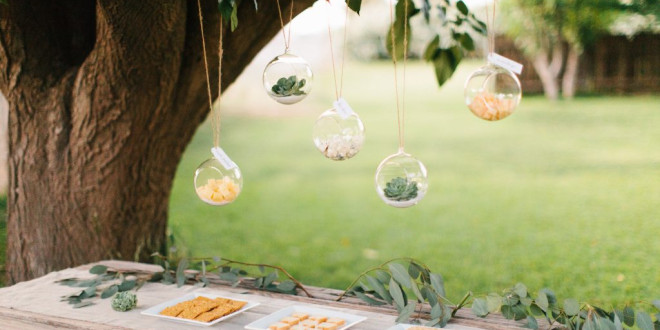[ad_1]
You have probably heard the popular wedding tradition saying before, but not every bride to be knows exactly where it originated from or what the meaning behind the saying is. It is a darling saying and is one of the only wedding traditions in today’s society which makes some sense. It is a cute tradition – one which is performed to bring good luck to the newlywed couple.
The traditional saying is:
Something old, something new
Something borrowed, something blue
And a silver sixpence in her shoe.
A sixpence is a coin that was minted in Britain from 1551 to 1967. It was made of silver and worth six pennies. This wedding tradition can be traced back to England, and many sources say that it began sometime in the Victorian Era. Each item in this sort poem represents a good luck token for the bride – if she carries them, it is said her marriage will have good fortune.
Something Old: The old item has several different meanings, but one general theme: a link of continuity from the bride’s past. Some say this is a desire to remain connected with your family even after you established a family of your own. Other sources say it represents the life you are leaving behind. Another idea is that the tradition of family values and the connection family brings is being passed down to you. It is safe to say that all of these assumptions are correct; the bride is leaving behind her past to start a new beginning, but not to forget where she has been. Things you can use for the something old theme are: jewelry from your mother, grandmother or great-grandmother, an old wedding photo from your family, a love letter from your father to your mother, a picture of your parents in your purse, an old handkerchief, a childhood pillow to hold your rings, a piece of lace sewn into the hem of your gown.
Something New: means optimism and hope for the future. It conveys the message that you and your husband are creating a new union that will endure the test of time. Many brides choose to use their wedding gown, flowers or rings to symbolize the “something new” in this tradition.
Something Borrowed: Again, there are several meanings behind borrowing an item from a friend or relative. Some sources say borrowing something is borrowing happiness from a happily married woman, so that their happiness will carry over to the new bride. Other sources have said it is symbolizes the love and adoration you have for the person from whom you have borrowed the item from. If you borrow an item from your happily married grandmother or mother, you can fulfill both of these meanings. Doing this lets your parents (or grandparents) know that you admire their marriage and the respect they have for each other and that you hope to have an equally happy marriage. The borrowed item also signifies to the bride that she can always count on her friends and family for support. Items that can be used for the something borrowed theme could be: family jewelry, a prayer book from your mother or grandmother, strands of pearls, or your parent’s cake cutting set.
Something Blue: The color blue has been connected to weddings for centuries as a symbol of love, modesty, fidelity, good luck, purity and loyalty. Many brides incorporate this color into their clothing, by either wearing a blue stoned jewelry item or wearing a blue garter. However for a modern spin, you could use blue toe nail polish, blue eye shadow, a blue ribbon tied into your flowers, blue underwear, even wear light blue shoes! The possibilities are endless and limited only by your imagination.
A Lucky Sixpence: A sixpence in the bride’s shoe represents wealth and financial security. For optimum fortune, the sixpence should be worn in the left shoe. This tradition may date back to the Scottish tradition of the groom placing a silver coin in his shoe for good luck. Many companies sell keepsake sixpence pieces for weddings.
Brides have been honoring the something old, new borrowed, blue tradition for centuries. Although these items are supposed to bring good luck to the bride, many brides are following this tradition to honor people close to them on their wedding day.
[ad_2]
Source by Erica Tevis

